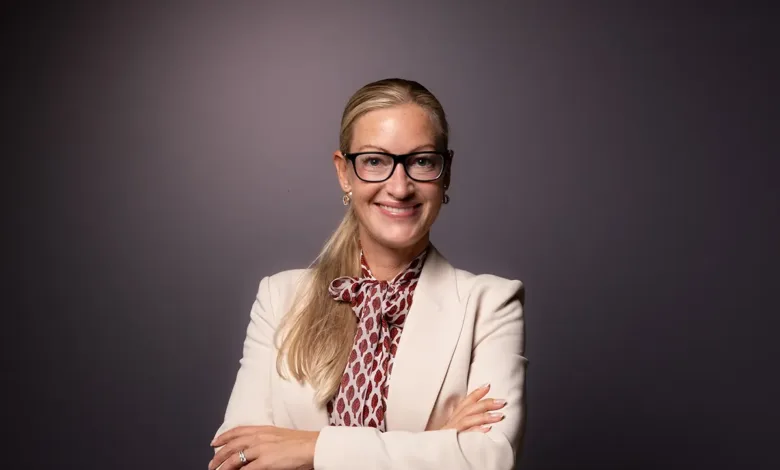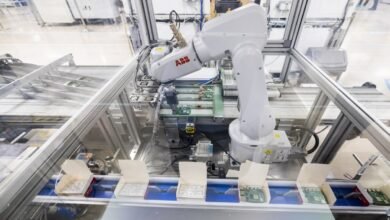Powering the Gulf’s Next Connectivity Revolution

▼ Summary
– The Gulf region is rapidly advancing in digital innovation through emerging technologies like private networks and AI-driven systems.
– Ericsson is showcasing advancements in programmable networks, AI automation, and enterprise solutions at GITEX to enhance performance for service providers and enterprises.
– Ericsson provides private 5G networks for industries such as oil and gas and logistics, enabling automation, IoT integration, and improved safety and efficiency.
– Security and resilience in software-defined networks are ensured through Ericsson’s multi-layered strategy, including AI-powered threat detection and encryption features.
– Ericsson’s partnerships with telecom operators like e& and du are expanding 5G capabilities to support digital services and sustainability goals in the Gulf.
The Gulf region is swiftly establishing itself as a global hub for digital innovation, where robust connectivity forms the foundation for sweeping industrial transformation. Advanced private networks are energizing vital sectors like oil and gas, logistics, and manufacturing, while artificial intelligence is redefining security protocols and system resilience. This evolution marks a significant new chapter for the telecommunications industry, moving beyond traditional services.
At the center of this dynamic shift is Ericsson, a worldwide leader in telecommunications infrastructure. The company is actively advancing technologies in private networks, software-defined systems, and AI-powered automation. Ahead of the GITEX GLOBAL event, Petra Schirren, President for the Gulf region at Ericsson Europe, Middle East and Africa, shared insights on the company’s strategic focus, the changing nature of its operator partnerships, and the most promising growth areas for the region in the years ahead.
When asked which emerging technologies Ericsson will feature at GITEX, Schirren highlighted progress in programmable networks, differentiated connectivity, and AI-driven automation. Event attendees will have the chance to see intent-based automation and industrial AI operating at a large scale. Notable exhibits will include network APIs and enterprise-grade solutions like digital airspace applications. These demonstrations are crafted to showcase predictable performance and deliver tangible value for both service providers and corporate enterprises. Visitors can locate the Ericsson booth in Hall 21, at stand H21 D10.
The conversation turned to the growing adoption of private networks in industrial settings. Schirren explained that these networks are unlocking new possibilities for sectors such as oil and gas, logistics, and manufacturing, allowing them to function with enhanced efficiency and improved safety. Ericsson provides private 5G solutions that offer secure, dependable connectivity specifically designed for the demanding conditions of industrial environments.
These dedicated networks are speeding up the implementation of automation, Internet of Things integration, and sophisticated analytics. Practical applications include predictive maintenance, real-time data monitoring, and greater operational visibility. In high-stakes industries like oil and gas, where safety and continuous operation are paramount, private networks deliver the necessary agility and resilience to streamline workflows and reduce potential risks. Ericsson’s involvement extends far beyond just providing a connection; the company delivers AI-driven automation and industrial solutions that help businesses refine their operations, boost productivity, and build scalable systems prepared for future demands. The ultimate goal is empowering industries to maintain a competitive edge in an increasingly digital world.
Regarding security in an era of software-defined and AI-managed networks, Schirren emphasized that security and resilience are fundamental to Ericsson’s entire approach. The company uses a multi-layered strategy, embedding security features directly into its telecom solutions to safeguard networks from the core all the way to the edge. AI-powered tools, such as the Ericsson Security Manager, automate critical functions like threat detection, anomaly monitoring, and policy enforcement. This ensures networks remain responsive and protected. When combined with robust encryption and secure interface configurations, Ericsson’s solutions help mission-critical environments maintain resilient, scalable, and highly reliable network performance.
The evolution of partnerships with telecom operators was another key topic. As a global ICT leader, Ericsson is guiding operators to diversify well beyond basic connectivity. Through strategic collaborations, the company enables operators to expand into digital services, 5G applications, and next-generation technologies, meeting the rising industry demand for both innovation and sustainability. In the UAE, Ericsson has signed a three-year agreement with e& to expand and modernize its 5G radio access network. This initiative involves introducing features like 5G Advanced, RedCap, and Critical IoT to power new consumer and business applications, all while supporting the UAE’s Net Zero and Green Agenda 2030 objectives. Ericsson has also extended its partnership with du to boost 5G network capacity and coverage, preparing the infrastructure for advanced digital services including augmented reality, virtual reality, and cloud gaming. These collaborations illustrate how Ericsson empowers operators to lead digital transformation efforts, open up new revenue streams, and deliver the solutions required for a fully connected future.
Looking at the biggest opportunities for Ericsson in the Gulf over the next ten years, Schirren sees a tremendous chance to contribute to the region’s digital transformation and unlock the full potential of 5G and other advanced technologies. Accelerating the deployment of standalone 5G networks will be a crucial step, enabling capabilities such as network slicing, differentiated connectivity, and a wide array of enterprise use cases across key industries like energy, manufacturing, public safety, and smart cities. The strong alignment between Gulf governments, industries, and operators around digitalization and sustainability creates a fertile environment for innovation. Ericsson will focus on driving enterprise adoption of technologies, including AI-powered networks, Fixed Wireless Access, and AI-enabled Radio Access Networks, helping industries expand within a more connected and efficient future. With sustainability remaining a core priority for the Gulf, Ericsson is committed to integrating energy-efficient technologies and responsible practices directly into network development. The company takes pride in collaborating with local stakeholders to support the region’s ambitious evolution into a worldwide center for technological innovation.
(Source: Economy Middle East)




